|
7/8/2014 Embracing the Advocacy Role...Or NotBy Christine Murray, See the Triumph Co-Founder
A few days ago, I wrote about the unique, and important, role that survivors can play in advocacy work to address intimate partner violence (IPV). As important as this role is, I want to emphasize that it should always be up to each individual survivor to choose whether or not to engage in this sort of work at any given point in time. Survivors need not feel any pressure--either from themselves or from others around them--to take on advocacy work. We’ve learned from survivors in our ongoing study on overcoming abuse that there are many reasons why people may choose not to take on advocacy work, and any and of these reasons--even simply that they do not want to do it--are valid and worthy of honoring. We heard from several participants in our research about some of the reasons they did not want to take on advocacy work. For example, some felt that it wouldn’t be a good match for their skills:
This is one of the reasons that we would love to see all people consider if and how they can help advocate to end the abuse and support survivors--regardless of whether they have any personal experience with IPV or not. With IPV, we’re facing a massive social problem that has been entrenched into cultures for generations and generations. The more voices that join this cause, the more powerful a message they can send together. However, it is important to honor survivors’ choice whether to join their voices with larger advocacy efforts. By Sara Forcella, See the Triumph Contributor
Whenever I tell people what field of work I am going into the first question that I always receive is why? What made me want to go into domestic violence advocacy? Each and every time I am asked this I feel as if I’m never prepared to answer. I’m never quite ready to let strangers or even employers into that private space where my answer lies. Never truly ready to become that vulnerable. My response is usually simple, something generic, like “I’m interested in women’s issues” or “I’ve seen people I know experience it”. Yet, by giving these generic responses I’m not being honest with myself or others. I decided that the only way for me to share my story was to express myself the best way I know how—to write about it. So, for the past few months I tried to write my story, to give those in it justice, to share my past to the best of my ability. But every draft never seemed right. For awhile I set the story aside altogether. Thats when to my surprise, I was asked to share my advocacy story with See The Triumph. It seemed like now was a good time as any to actually put my story into writing. To share what lead me on my journey of advocacy with all of you—the folks who I have shared my work, thoughts and stories with and more importantly the folks who have been brave enough to share their stories with me. The truth of the matter is that I am lucky enough to never have been physically abused myself. I have dealt with verbal and emotional abuse, but never physical. I’ve had my share of bad relationships, some of which reflecting upon were definitely unhealthy. I’ve been in relationships that involved emotional and verbal abuse, ones that were riddled with issues of power and control, some that had they lasted may have turned violent. But this story is not about my relationships, not the intimate ones at least. What led me into IPV advocacy were much different kinds of relationships—they were friendships. Back when I was in college (not too many years ago) I noticed so many of my girlfriends stuck in bad intimate relationships. Relationships where sex was forced upon them through manipulation or coercion. Relationships where they were berated or put down. Relationships where phones would be checked constantly and there were accusations of cheating. Relationships that were just not healthy. Relationships in which my girlfriends didn’t even realize that they were being abused or sexually assaulted because they thought these behaviors, these beliefs, were ‘normal’. These were all relationships that I was aware of, yet for some reason I never talked about their dysfunction with my friends, I never urged them to press charges after they were sexually assaulted when they were too intoxicated to even give consent. All of us just saw this as the typically college life, the kinds of things that girls have to learn to deal with. What I soon realized was that my silence, my lack of outrage, was allowing these forms of gender based violence to continue. One of my friend’s relationship in particular was extremely abusive—it was verbally, physically and emotionally abusive—and I knew this. Watching my friend dealing with the reality of intimate partner violence, and somewhat losing her to it, pushed me to begin my journey as an IPV advocate. My involvement in this relationship was complex; I was friends with both individuals. At that time I cared about them both and wanted to see them both happy. Seeing them both happy meant that they needed (in this case) to go their separate ways. Which also meant I was stuck in the middle, trying my best not to take sides. As an outsider I thought that breaking up would keep the peace, but it didn’t. Still in my very early twenties, the complexity of this situation was not lost on me. I had no clue where to turn or even what to say to either of my friends involved. The couple still saw each other and the fighting only increased. Eventually my friend began to come over with random bruises attached to nonchalant stories that usually included phrases like, “It was my fault I…. annoyed him, or he saw me text a boy, or I went out last night”. My brain registered that she felt it was her fault ,yet my heart was telling me something different, that she was not to blame and that she did not deserve this. I saw this person as strong, funny, confident and beautiful; yet, she saw none of this herself. The first tactic that I used to try to ‘help’ was informing her of this—telling my friend that her partner was a jerk and she could do better. Consequently, this seemed to push her further away from me. At one point I felt so desperate that I took one of the Domestic Violence Hotline Number’s off of a bathroom wall and gave it to her. With no avail I decided to stop trying—that my voice didn’t matter. Knowing that bashing her partner would do little to help her, or our friendship, I decided to go another route. Instead of saying anything negative I just listened; I didn’t ask questions and I tried not to mention her partner's name. Sometimes I swear I had to bite my tongue so hard to keep from saying anything bad that I swore it might fall off. In keeping silent I sort of helped our friendship, yet I didn’t help my friend who still came over with bruises. For me this silence, this unspoken elephant in the room, became a way of dealing with my friend’s violent relationship. But what I soon learned was that this silence got me in trouble and it hurt others. One night, as I spent time with a group of friends my silence nearly suffocated me. While there I began to hear yelling, glass hitting the wall and shattering. I could hear my friend crying. I had absolutely no clue what to do. My first instinct was to grab my phone and call the cops—something I was quickly told not to do. The others said that this happens all the time and that if I was to get the police involved both of my friends would get arrested. I wanted to march down there and stop the fight myself but again I was advised against it. So I did nothing. I remained silent and sat upstairs as a terrified bystander. Eventually, somebody broke the ‘fight’ up, however, nothing about this situation settled well with me. The next day everybody acted as if nothing happened. When I tried to talk to my friend about it she was embarrassed and avoided the larger than life elephant sitting beside us. It was this ten minutes of silence that I decided I had to do something, and this is when I decided looking into IPV advocacy work. Looking back on that night I realize that I was a bystander, that I allowed my friend to be harmed. I allowed others to sit back and do nothing—and even worse I allowed them to think that this was okay and “normal”. At the time I thought that my silence would protect me, that it might protect my friendship, but what I truly failed at was protecting another human being. Sometimes I wonder what would have happened if I had stepped in. Would I have gotten harmed? I may have. Would my voice have been heard? It may have. I honestly don’t know, but what I do know is that I cannot allow my voice to go unheard again. I cannot allow others to believe that IPV is normal and that it’s acceptable. In this case of IPV, like many others, everybody knew about the abuse. It wasn’t a secret. Everybody knew that the couple ‘fought’ and things got ‘out of hand’. Everybody saw the bruises, the broken glass. But, nobody did anything; nobody said anything. This is where I have found my place as an advocate—it is these small moments of silence, the unknown of where to go and who to turn to, that I hope to change. Had I known more about IPV back then, I may have been able to change the situation—or not. But it’s important for me to help the millions of other women and men who are out there dealing with the same things. It’s imperative for me to verbalize to others that abuse is never okay, that it is illegal, and that it is way more than a lover’s quarrel turned giant elephant in the room. By Christine Murray, See the Triumph Co-Founder
In our original research that led us to begin the See the Triumph campaign, some participants described how they were motivated to use their past experiences with abuse to become an advocate to helping others who have been abused. As we’re addressing throughout our series this month, being an advocate means different things to different people, and it could come in the form of paid and/or volunteer work with victims/survivors of domestic violence, providing support through a community or religious organization, writing letters to the editor, speaking about their experiences with others in the community, and other formal and informal forms of advocacy. We’ve recently been collecting data for a new study, and one of the questions we’ve asked participants is, “To what extent do you view yourself as an advocate?” So far, we’ve gotten some really great and insightful responses to that question, and in a series of blog posts over the coming weeks, we’ll share some of the initial feedback we’ve received from the participants who’ve completed the survey so far. Today, I’ll highlight the important and valuable voice that survivors bring to advocacy work to address intimate partner violence (IPV). Now, I believe strongly that everyone can be an advocate to raise awareness about IPV and the stigma that surrounds it, provide support to survivors, and hold offenders accountable. Ideally, every person in the would get behind this cause, whether or not they have any personal experience with abuse. I believe that all should be welcomed to this important table. However, survivors’ voices, experiences, and perspectives are especially important to advocacy efforts to address IPV at both the individual and societal levels. Of course, nobody should be forced to share their story, either publicly or anonymously, unless they feel completely comfortable and safe in doing so. I’ll address the importance of survivors choosing whether or not to engage in advocacy work in the next blog post in this series. When survivors share their stories as part of advocacy efforts, they bring a powerful voice and important perspective that can both help to educate the general public and provide support and inspiration to survivors. The following quotes from participants in our research--all survivors who had been out of any abusive relationships for at least two years--demonstrate the importance of this perspective:
Survivors’ stories provide powerful reminders of the horrific abuse that many people experience, and yet they also illustrate the triumph and strength that people show when they overcome abuse. Therefore, advocacy efforts to address IPV should honor survivors’ lived experiences, as these are at the core of the reasons why advocacy work is so important. By Christine Murray, See the Triumph Co-Founder
What does advocacy mean to you? This question inspired our series this month on “Everyday Advocacy,” and we hope you’ll join with us this month in thinking about what it means to be an advocate for ending intimate partner violence and the stigma surrounding it. We know that so many of the members of our See the Triumph community are strong advocates already, and you inspire us by all the ways you work to promote safe, healthy relationships and raise awareness about intimate partner violence. Allison Crowe, my Co-Founder at See the Triumph, and I have really embraced the advocacy work that we do through See the Triumph. The truth is, though, that when we first started this campaign in January 2013, our initial focus was using this campaign as a way to disseminate our research, and I don’t think either one of us would have envisioned at the time how much more the advocacy role would grow to be so important to us. As we moved forward with the campaign, we saw more and more the potential of the campaign to promote positive social change. And so, we quickly found ourselves in the role of advocates, working to end the stigma surrounding intimate partner violence and develop resources to support survivors. Our partnership with the Stop Abuse Campaign helped to further solidify this identity. Allison and I are both professors, so in many ways stepping into advocacy work has been a stretch for us--we didn’t receive training on this in graduate school!--but we both now view advocacy as central to the work we do. Personally, embracing the advocacy role has been an exciting and, at times, honestly, uncomfortable journey for me. At times, advocacy work feels like you’re putting yourself and your viewpoints out there for all the world to see (and critique!), and so there’s a certain level of vulnerability that comes along with this type of work. And yet, despite those risks, I find myself more and more drawn to advocacy work, not just because it has the potential to make a difference, but because it is so, so needed. Unfortunately, intimate partner violence and other forms of abuse are deeply entrenched in our society, and the stigma that surrounds it presents a major barrier to survivors and others who support them, as well as those who work to prevent and respond to violence in communities all over the country. The task before us is a huge one, but working together I believe we can really make a difference toward creating a safe, nonviolent world. All throughout this month, we want to share resources and ideas to help you consider ways to take on “Everyday Advocacy” efforts--big and/or small--to raise awareness about intimate partner violence and promote the types of social changes that will help to end it. Our four main themes for the month are: 1. Advocacy means taking action to promote positive change within social systems. 2. Everyone can be an advocate for ending intimate partner violence and supporting survivors. 3. Advocacy efforts can be big and/or small. 4. Survivors themselves have a unique and powerful role to play as advocates We look forward to hearing your thoughts throughout the month, and especially your own advocacy ideas and experiences that can help inspire us and others to do more! |
Archives
July 2024
CategoriesAll About Intimate Partner Violence About Intimate Partner Violence Advocacy Ambassadors Children Churches College Campuses Cultural Issues Domestic Violence Awareness Month Financial Recovery How To Help A Friend Human Rights Human-rights Immigrants International Media Overcoming Past Abuse Overcoming-past-abuse Parenting Prevention Resources For Survivors Safe Relationships Following Abuse Schools Selfcare Self-care Sexual Assault Sexuality Social Justice Social-justice Stigma Supporting Survivors Survivor Quotes Survivor-quotes Survivor Stories Teen Dating Violence Trafficking Transformative-approaches |
Search by typing & pressing enter


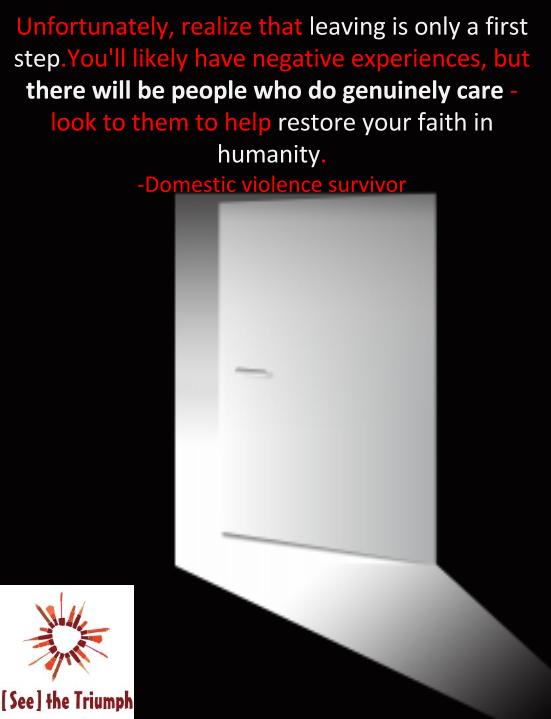
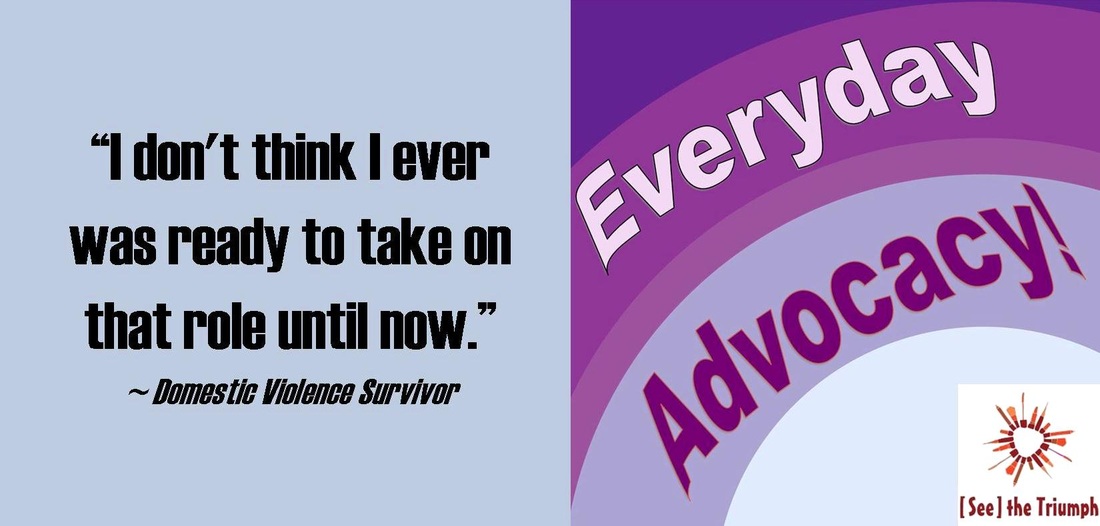
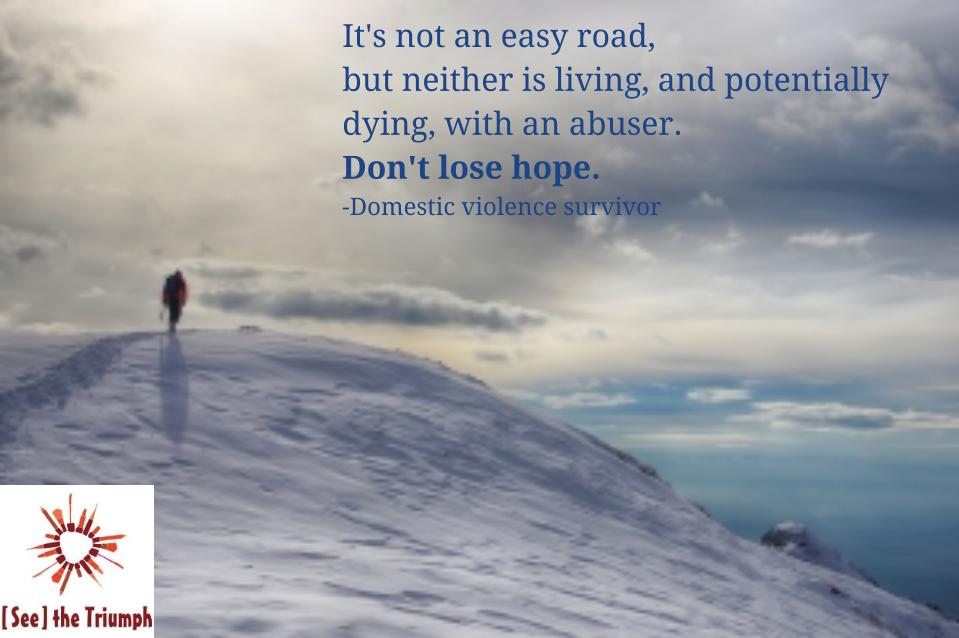
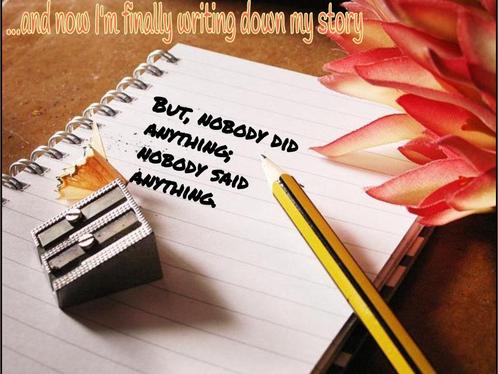
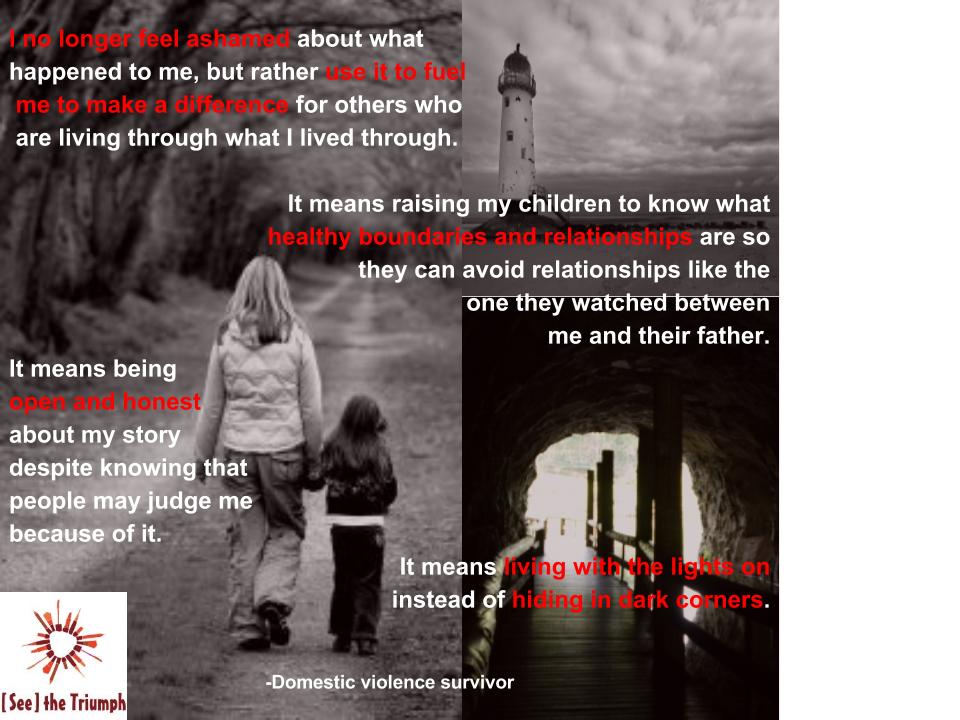
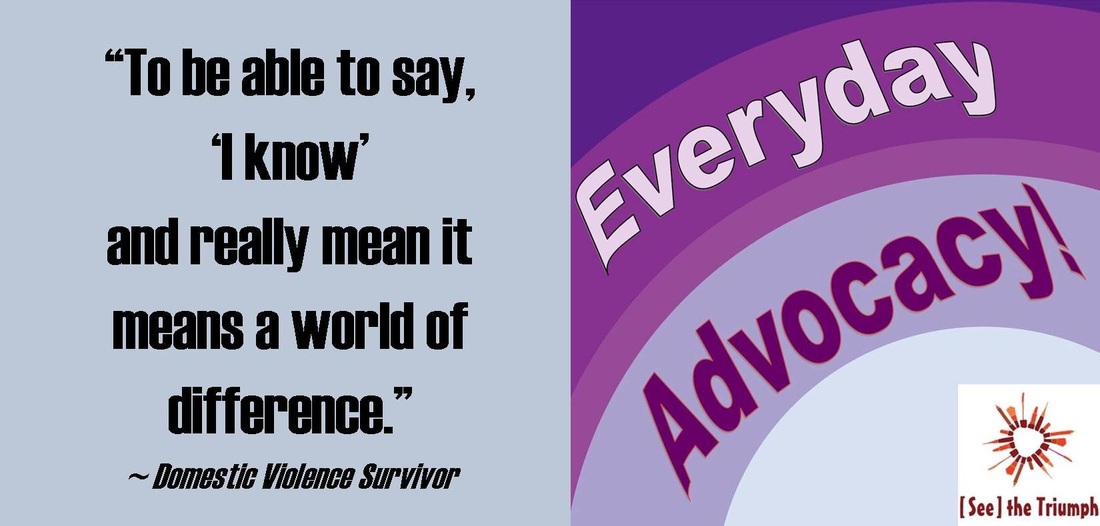
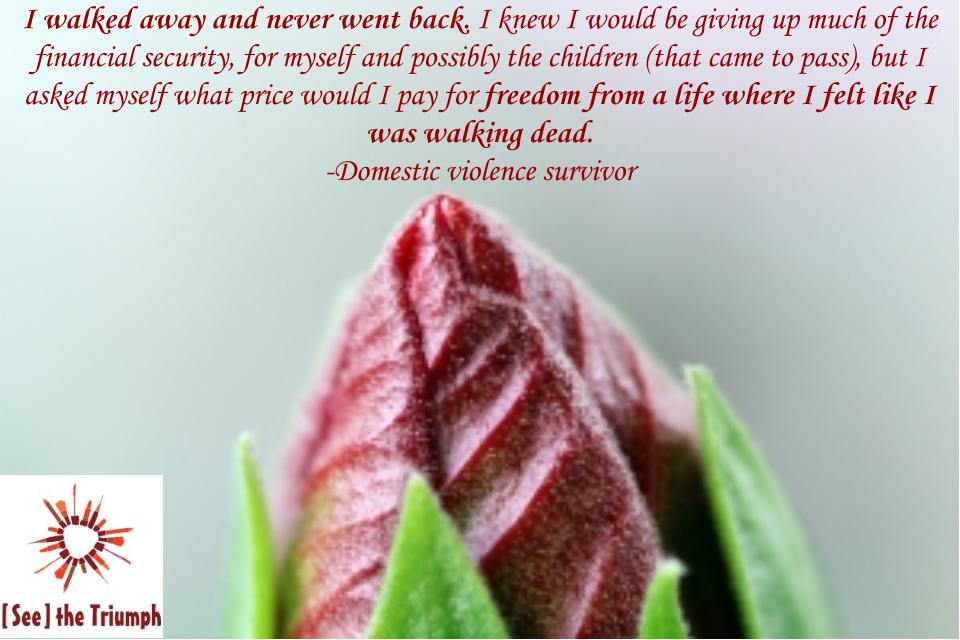
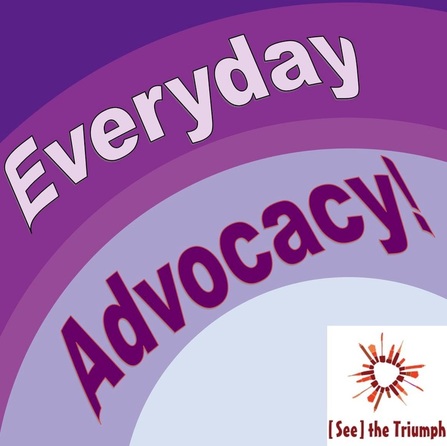
 RSS Feed
RSS Feed